Home » Jazz Articles » Interview » Mark de Clive-Lowe: Celebrating Pharoah Sanders
Mark de Clive-Lowe: Celebrating Pharoah Sanders
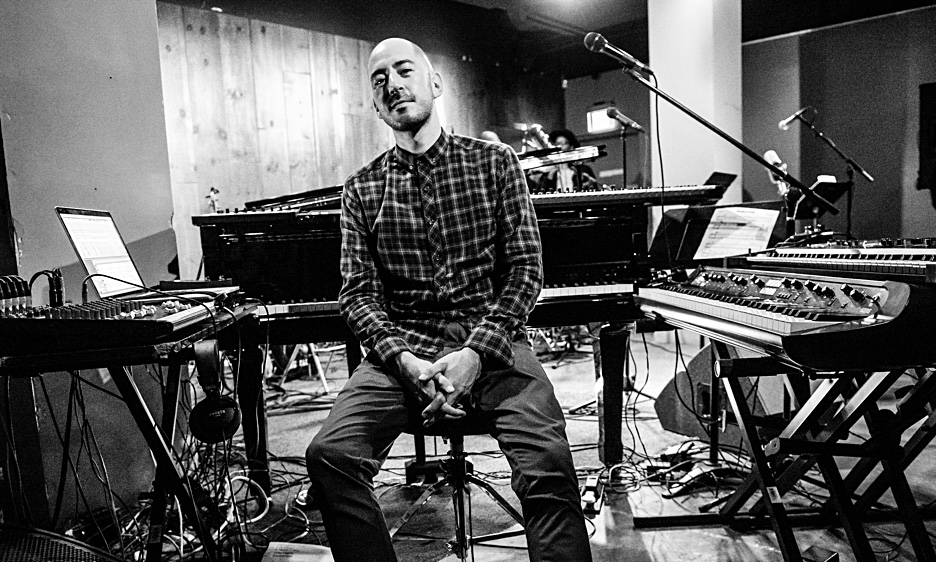
Between jazz and the dance floor, I could never choose one over the other. To me they’re two sides of the same coin and blurring the lines between them has become my modus operandi. I’m not interested in music that is purely cerebral or purely physical. It has to be holistic.
—Mark de Clive-Lowe
Laswell, a generation older than de Clive-Lowe, was first out of the traps in the 1990s, with his avant-funked up productions of Sanders' studio albums Message From Home (Verve, 1996), Save Our Children (Verve, 1999) and With A Heartbeat (Douglas, 2004). Laswell also produced The Trance Of Seven Colors (Axiom, 1994), a field recording made in Morocco on which Sanders guested with gnawa shaman Maleem Mamoud Ghania's ensemble.
On Freedom, Los Angeles-based de Clive-Lowe plays acoustic piano as well as electric keyboards, and despite his involvement in electronic dance music, about which more later, the album is an acoustic one, recorded live on stage. He is joined by five of LA's finest: the inheritor of Leon Thomas' spiritual-jazz vocals mantle, Dwight Trible, tenor saxophonist Teodross Avery, bassist (and, on one track, sousaphonist) Corbin Jones, drummer Tommaso Cappellato and percussionist Carlos Niño.
The 2 x LP/2 x CD album was recorded in 2018 at LA's Blue Whale jazz club, which, sadly, closed in late 2020, a casualty of The Great Pause. The ninety-minute package features a dozen tunes associated with Sanders, most of them originals and mostly from his late 1960s/early 1970s Impulse! albums, but also including a stirring "You've Got To Have Freedom" from 1980's Journey To The One (Theresa). Other highlights include "Upper Egypt" from Sanders' own-name Impulse! debut, 1967's Tauhid, and "The Creator Has A Master Plan" from 1969's follow-up, Karma. What appeals about Freedom is not that de Clive-Lowe and company replicate Sanders' arrangements and performances but that they purposefully do not, inhabiting the spirit of the music rather than attempting literal replication.
It is no more than serendipity, but nonetheless appropriate, that the album which first turned de Clive-Lowe on to Sanders was Thembi (Impulse!, 1971), the first of his albums to embrace the possibilities of studio technology beyond straightforward audio transcription. Thembi was co-produced by Impulse! staffer Ed Michel and rock engineer Bill Szymczyk, and it was largely through Szymczyk's involvement that Sanders' music was introduced to what were at the time, for jazz, advanced studio practices such as close miking, overdubbing and phasing. "Thembi" itself is one of the Sanders tunes revisited on Freedom.
De Clive-Lowe was born in New Zealand to a Japanese mother and New Zealander father and was raised bi-lingually and bi-culturally. He began piano lessons aged four and was exposed to jazz early on by his older brother. From the age of ten, he visited Japan annually and in his teens went to high school in Tokyo. In 1994, he attended Berklee College of Music in Boston, but dropped out after two semesters and returned to New Zealand, becoming a professional musician. From 1998 to 2008 he lived in London, where he became involved in the city's burgeoning electronic dance music (and particularly its broken beat) scene. Since then he has been based in LA.
De Clive-Lowe talks about all this in the interview below. He concludes with a list of six albums which have been influential on his development, from Pharoah Sanders, Ahmad Jamal and Keith Jarrett through hip hop and break beat.
Purism vs Hybridism
All About Jazz: You've spoken elsewhere about not feeling wholly Japanese or wholly a New Zealander when you were growing up. Do you think that duality connects with your ability to create jazz and electronic dance music with equal conviction?Mark de Clive-Lowe: I love that question. Yes, I think there absolutely is a connection, but I've only quite recently become aware of it. I've spent the last twenty-five years straddling jazz and club music. I love jazz with an absolute diehard passion and growing up there were records from Miles Davis and John Coltrane through to Branford Marsalis that were just the greatest things I'd ever heard. That was the world I really aspired to being a member of. But when I started playing I encountered a lack of acceptance by the jazz establishment because of my parallel love of club music. And I found that the purists in that world wouldn't accept me either. It was like, here's this muso, this jazz kid, crashing in, he doesn't belong here. In the jazz world today, when I'm playing with Eric Harland or Kamasi Washington or Harvey Mason, those people affirm my legitimacy. And in the club world, if I'm in the studio with Kenny Dope or Phil Asher, rest in peace, I know I'm legitimate because of their acceptance. But when it comes to those guys you might call mainstream practitioners of both those forms, I'm still seen as an outsider, an interloper.
Ultimately I think the knock backs motivated me to find my own voice and forge my own path and have my own relationship with history and lineage. If I had been superconformist in the jazz world I would probably have followed my original dream of going to New York and playing with Art Blakey or something. Which would have been amazing but it would not have been my real voice. At the same time, if I'd gone fully into the club music world, then I might just be making straight-ahead house music. That would also be fine. But what I really love is the breadth of bringing the two worlds together, creating a hybrid.
AAJ: Do you think jazz in general needs to hybridize in order to survive and stay relevant?
MdC-L: Definitely not. Jazz has always hybridized, but not in order to survive. Jazz is like a magical bowl that can hold anything and transform it into something else. Dizzy Gillespie and Latin American music is a great example. Or Stan Getz and bossa nova. Or Miles Davis and fusion and rock. For the me the music in its most honest form is a reflection of the lives and times and experiences and passions of the individual musicians. I love Oscar Peterson but it would be disingenuous for me to try to sound like him. It's not my reality.
The Jazz Club and The Dance Floor
AAJ: Do you feel any division between jazz and dance music?MdC-L: Between the jazz club and the dance floor, I could never choose one over the other. For me they're two sides of the same coin, and blurring the lines between them has become my modus operandi. Historically, jazz was dance music. More than that, for me, when I go to see a great jazz musician performing, I'm not looking for the academia behind the music, I'm listening for the spirit of the music, the energy, the vibe—how does this move me? When I'm in a club listening to jungle or broken beat, it's the same thing. I'm not listening to the intricacy of the beat or the sample, I'm listening to the vibe. In any form of music I'm not interested in something that is purely cerebral or purely physical. There has to be something beyond that. When I'm listening to it, music has to be holistic.
AAJ: When you moved to London from New Zealand did you find musicians to be more open to cross-genre and indeed cross-cultural hybridization?
MdC-L: Totally. Today New Zealand is one of the greatest cultural melting pots on earth, but when I was growing up there was little diversity and what there was was kept on the other side of the tracks. So to come to London and, especially in the music world, to be immersed in this amazing mix of African, Caribbean, European, this whole mix of people united by making music, that was just amazing for me. There was an incredibly open-minded creative community in London, unlike anything I'd experienced in Japan or New Zealand.
AAJ: Has Japan also become more culturally outward facing?
MdC-L: Up to a point. It has become more multi-cultural now but is still definitely rooted in homogeneity. It's always been an incredibly homogenous country. I mean, they even closed it off from foreign visitors for four hundred years, to protect their homogeneity. Growing up, I was never seen as Japanese in Japan. By the older generation I was seen as some bastardisation of a pure Japanese. By my peers I was seen as a totem of aspiration—as in "We want to be Western but we don't want to be not Japanese."
AAJ: It's something of a wonder that Japanese youth took so wholeheartedly to jazz in the early 1960s, starting around the time of Art Blakey's 1961 tour, when you remember that the devastation caused by the atomic bombs had happened just sixteen years earlier.
MdC-L: Key to that I think is the fact that jazz was born out of civil protest. I don't know how conscious Japanese audiences were of that in 1961, but I believe that things like that are encoded in music. Like if Coltrane [who toured Japan in 1966] was playing "Alabama" they felt it. Also if you think of the second world war in the context of global white supremacy and the colonial mentality, on the Western side it was fundamentally a very white war. I think the Japanese would have picked up on that when taking in black American jazz musicians. So I think a black artform like jazz is pretty easy to separate from white supremacy. Also in Japan the idea of family and the ancestors is strong, as it is in black American culture. I think Japanese audiences would have picked up on that too.
Celebrating Pharoah Sanders
AAJ: Since you moved to Los Angeles you've lived in a city which seems pretty much as culturally open as London.MdC-L: When it comes to LA, we have two things going on. We have legacy artists—Herbie Hancock, Bennie Maupin, Pharoah Sanders, Patrice Rushen—all these people are here, so we have that connection to the history of jazz. Then we have Thundercat, Flying Lotus, the whole Brainfeeder thing, and that's really informed a lot of what happens here. In LA there's definitely youthful, progressive, jazz hybridity going on. Another thing I love about being here is it also kind of connects me to my roots. After a decade in London, LA was exactly what I needed—I was back in the sun, back by the Pacific Ocean, with New Zealand and Japan both over the horizon. A long way over, true, but no landmass between me and them. LA is good in another way, too. I think that for practitioners in any artform, location is key. I strongly relate to the idea of America as the birthplace of jazz and being here makes me feel part of that. Frankly, during my decade in the UK I barely touched an acoustic piano. I actually ran a mile from the idea. But when I came to LA I reconnected with the piano. I realised that it was always my first love. I kind of felt I had more permission to connect with my jazz roots than I did when I was living in London.
AAJ: Let's conclude with Pharoah Sanders. What is it that attracts you to his music?
MdC-L: [Laughs]. What doesn't? It's just so magical. My enthusiasm started when I was in high school in Japan in 1992. Going into Tower Records in Tokyo was rather like Spotify today, the jazz section was the size of a complete store and it seemed like practically every jazz album that had ever been recorded had been reissued on CD. I made so many discoveries, it was a huge pivotal moment in my jazz education. One of the albums I came across was Pharoah's Thembi (Impulse, 1971). Hearing that for the first time, it ticked so many boxes that I didn't even know I was looking for. There was a feeling in the music that I hadn't gotten from jazz before. I'd been listening to a lot of modern post-bop, like Branford, Kenny Garrett, and I'd checked out Miles and Trane and Herbie. So I was familiar with what you might call the obvious things. But Pharoah felt like it had a different mission statement.
It felt like it was speaking to.... humanity? I don't think I would have verbalised it like that back then, but that was what drew me to Thembi. There's something universal about Pharoah's approach in general. There's this openness. It wasn't dissimilar to hearing Wayne Shorter. There's something very human about the sound of Wayne's sax. And when Pharoah's wailing, you hear humanity and human history and ancestry. Compositionally it's pretty simple, there are no weird changes of meter or polychordal harmony. That simplicity provides a vehicle to really resonate with people who may not even be jazz heads. And I love the way he can combine really aggressive free jazz with beautiful melodic structures. He's just incredible.
AAJ: Are the musicians on the album regular colleagues? The gig was a one-off but the band is really together.
MdC-L: Dwight Trible and I play quite a lot together. I played on his last album and he was actually the first bandleader to bring me into a band when I got to LA. That was the first time I was back on acoustic piano for a long time. So I reach out to Dwight to guest with me fairly often. Tommaso Cappellato and I have worked together quite a lot over the past decade. Carlos Nino and I collaborate a lot. Teodross Avery was a senior at Berklee when I was a freshman and he guests of my album Heritage [Ropeadope, 2019], as does Carlos.
So although we're not a working band, we all know each other pretty well. We rehearsed for only about three hours or so, a few days before the gig. Like I said, Pharoah's music is not complicated, it's very simple. When you perform music like that, it's about the chemistry between the musicians and the individual and collective understanding of the intention of the music. You combine those two elements and suddenly you have this kind of cohesive interpretation and expression of an idea where there's no wrong notes, there's no wrong decisions. It's like we're all open to the moment and we trust in each other. We know it's going to be good.
Six All-Time Favourite Albums
De Clive-Lowe says: These are many, many albums that are important to me, so it's really hard to narrow them down to just six. If you ask me tomorrow, I'd probably choose another six.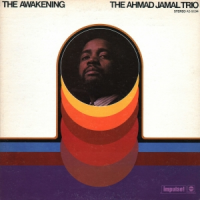 Ahmad Jamal
Ahmad Jamal The Awakening
Impulse, 1970
My eldest brother gave me this album when I was about ten years old. I didn't understand it but I loved it. It felt very soulful and melodic. I heard it at the right moment basically. In the decades since then it's remained with me and it's absolutely one of my favourite piano trio records and Ahmad Jamal is one of my favourite musicians. There's something about this trio with Jamil Sulieman Nasser and Frank Gant. Basically, they have a sound. Later on, of course, when I was getting into hip hop, I would hear the album sampled by so many people. That kind of added validity to my love for it. Such a beautiful record.
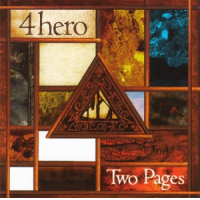 4 Hero
4 Hero Two Pages
Talkin' Loud, 1998
I heard parts of this before I moved to the UK, I had the EP which came before it and had some of the tracks, specifically "Loveless," which had Ursula Rocker on it. It's a combination of live break-beat drums, upright bass, really out-there strings and spoken-word poetry. I'd never heard anything like it. I'd heard jungle and drum 'n' bass and 4 Hero were extending those further and that really excited me. There was so much musicality in it. That's what I really love about club music, when it gets musical.
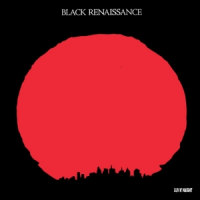 Harry Whittaker
Harry Whittaker Black Renaissance
Baystate, 1977
I heard this when I was living in London. In the UK it's a jazz-DJ classic but it's one of the gems that may have been overlooked in the US. Harry Whittaker was an incredible pianist and composer, I would call him a producer as well. The album is like a suite. There's a simplicity to it, where you have these grooves that underpin the whole vibe, which is almost like a hip hop record, but it's all live. Then there's a really interesting use of delays and effects which I think was quite unusual at the time. It's almost like a proto jazz/hip-hop record and there's a really interesting use of the ensemble. [On Bandcamp, Freedom drummer Tommaso Cappellato calls it "One of the most legendary Spiritual Jazz testimonials of all times."]
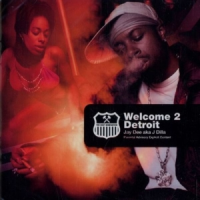 J Dilla
J Dilla Welcome To Detroit
BBE, 2001
No way are all six of these going to be jazz records! Apart from how great this record is, J Dilla changed how musicians play. I don't think there has been another single beatmaker or electronic music producer who has done that. Like one man and how he worked with a drum machine has literally changed how musicians play. Even now, two decades after this music came out, there's a certain tempo that you're going to play and if it's going to have a backbeat and it's played by leading jazz musicians, it's probably going to have a Dilla kind of groove. And the fact that I can be with a band and I'm like, gimme that Dilla shit and people know what I mean. It's like saying, gimme that Elvin [Jones] kind of thing. It's that entrenched in the culture now. Welcome To Detroit really captured the range of what Dilla was capable of.
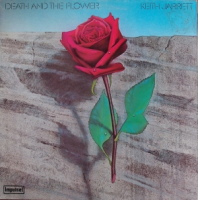 Keith Jarrett
Keith Jarrett Death And The Flower
Impulse, 1975
Needless to say, Keith Jarrett is one of the greatest piano players who ever lived and I have spent a lot of time with pretty much all of his catalogue. Something about the American Quartet really captured my heart and my imagination and that combination with Charlie Haden and Dewey Redman and Paul Motian was more than remarkable. It's kind of magical when you have a band where everyone is on the same page. Compositionally, Death And The Flower is simple but the shared intentionality of the musicians creates this really beautiful work. It's similar to the Harry Whittaker album in that it's a suite, it tells a story as a whole album rather than separate tracks. That's something I'm generally drawn to. It feels ancestral, it feels like folk music, it feels like free jazz, it feels soulful... it just has all those things for me.
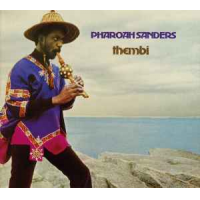 Pharoah Sanders
Pharoah Sanders Thembi
Impulse, 1971
I would be remiss not to include the Grandmaster's album. This is my first Pharoah Sanders record and I didn't know until later that Lonnie Liston Smith was on the record and I have a huge affinity for his work. And Michael White is there as well. When I first heard this I had no idea who was on it. I absolutely knew Roy Haynes as a drummer but I didn't know he was on this record. So the lineup is incredible. I think partly thanks to Lonnie Liston Smith it's a very soulful record. I love the inclusion of the Rhodes and those outlandishly wild free jazz moments juxtaposed with super soulful joints. A beautiful, beautiful record and so timeless.
< Previous
Frank Kimbrough 2003 - 2006
Next >
Siwan: Hafla
Comments
About Mark de Clive-Lowe
Instrument: Keyboards
Related Articles | Concerts | Albums | Photos | Similar ToTags
Interview
Mark de Clive-Lowe
Chris May
Bill Laswell
Maleem Mamoud Ghania
Leon Thomas
Dwight Trible
Teodross Avery
Corbin Jones
Tommaso Cappellato) and percussionist {{Carlos Nino
Ed Michel
Ahmad Jamal
Keith Jarrett
Miles Davis
John Coltrane
Branford Marsalis
Eric Harland
kamasi washington
Harvey Mason
Kenny Dope
Phil Asher
Art Blakey
Dizzy Gillespie
Stan Getz
oscar peterson
Herbie Hancock
BENNIE MAUPIN
Patrice Rushen
Thunder Cat
Flying Lotus
Brainfeeder
Kenny Garrett
Wayne Shorter
Jamil Nasser
Frank Gant
Ursula Rocker
Harry Whittaker
J Dilla
Charlie Haden
Dewey Redman
Paul Motian
Lonnie Liston Smith
Michael White
Roy Haynes
For the Love of Jazz
 All About Jazz has been a pillar of jazz since 1995, championing it as an art form and, more importantly, supporting the musicians who create it. Our enduring commitment has made "AAJ" one of the most culturally important websites of its kind, read by hundreds of thousands of fans, musicians and industry figures every month.
All About Jazz has been a pillar of jazz since 1995, championing it as an art form and, more importantly, supporting the musicians who create it. Our enduring commitment has made "AAJ" one of the most culturally important websites of its kind, read by hundreds of thousands of fans, musicians and industry figures every month.






















